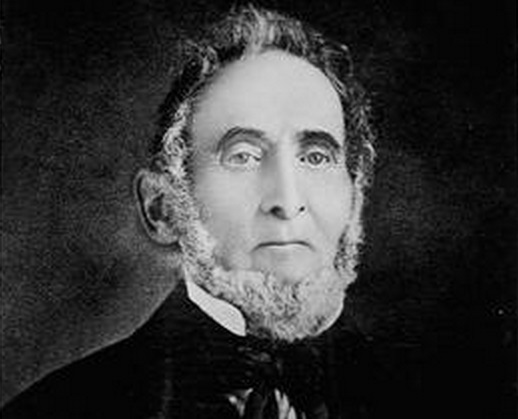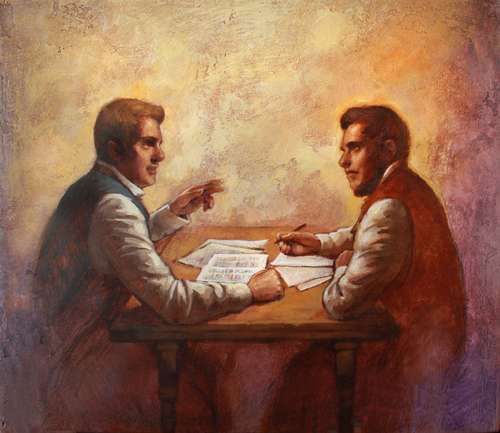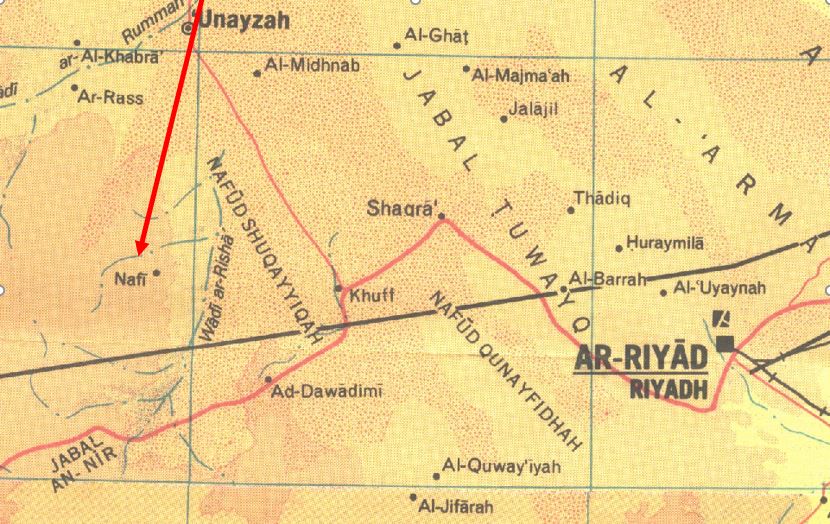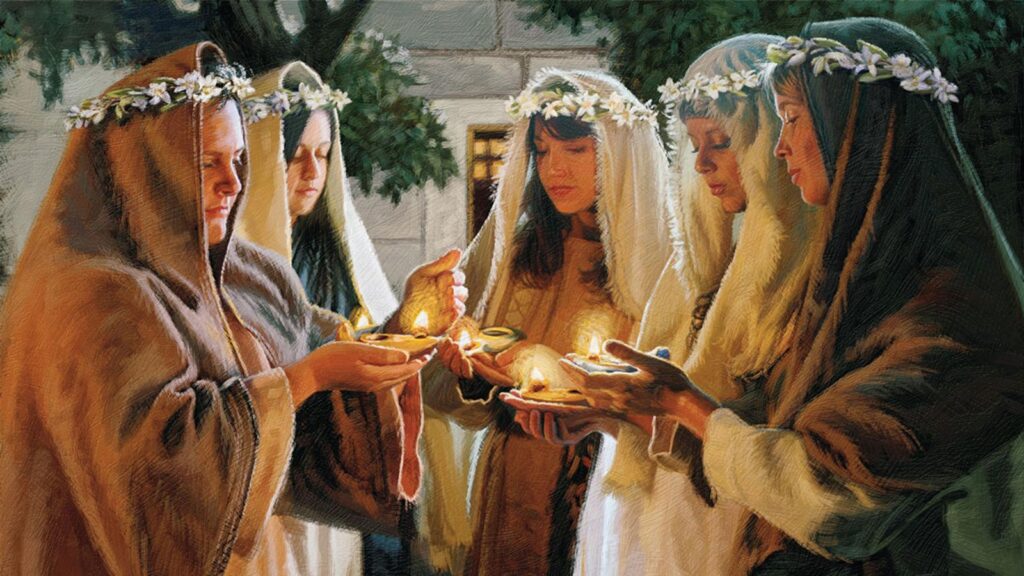To accompany your Come Follow Me study for April 7-13
In addition to reading D&C 30-36 this week, you will want to read:
- “The Faith and Fall of Thomas Marsh,” “Ezra Thayer: From Skeptic to Believer,” and “Orson Pratt’s Call to Serve” in Revelations in Context, 54-59, on your Gospel Library app or at https://www.churchofjesuschrist.org/study/manual/revelations-in-context/the-faith-and-fall-of-thomas-marsh?lang=eng
- Saints, 1:79-80, 119-20
- “A Mission to the Lamanites,” Revelations in Context, 45-49
- Chapter 13: Doctrine and Covenants 30–34 (churchofjesuschrist.org)
- Chapter 14: Doctrine and Covenants 35–36; 39–40 (churchofjesuschrist.org)
- Joseph Smith’s Revelations, Doctrine and Covenants 30 (churchofjesuschrist.org)
- Joseph Smith’s Revelations, Doctrine and Covenants 31 (churchofjesuschrist.org)
- Joseph Smith’s Revelations, Doctrine and Covenants 32 (churchofjesuschrist.org)
- Joseph Smith’s Revelations, Doctrine and Covenants 33 (churchofjesuschrist.org)
- Joseph Smith’s Revelations, Doctrine and Covenants 34 (churchofjesuschrist.org)
- Joseph Smith’s Revelations, Doctrine and Covenants 35 (churchofjesuschrist.org)
- Joseph Smith’s Revelations, Doctrine and Covenants 36 (churchofjesuschrist.org)
Young and old alike should enjoy the following videos:
Younger members or those less acquainted with this phase of Church history may also enjoy the following videos:
If you would like a Kahoot game related to this material to use with your family or class, click: https://create.kahoot.it/share/doctrine-and-covenants-30-36/093f4e66-f981-447b-bf45-6763dc87386e. To use it with a group, after clicking on this link, you will need to log into Kahoot, creating a free account if you have not done so previously, then click on the blue “Host Live” button or the gray “Assign” button, depending on how you wish to use the Kahoot. Some of the Kahoot questions may presuppose that the player has read through the suggested answers to the following Points to Ponder and at least has browsed the Institute student manual as well.
Points to Ponder in Doctrine and Covenants 30-36
1. What do you consider the most significant instructions to missionaries in these sections that are still applicable today?

2. The Lord instructs Thomas B. Marsh to “lift up [his] heart and rejoice” (D&C 31:3). How can choosing joy—even amid trials—help us receive divine guidance?
3. David Whitmer is told to “fear not” (D&C 30:11). What fears might hold us back from fulfilling our callings, and how can faith overcome them?
4. The Lord says the field is “white already to harvest” (D&C 33:3). How can we develop “eyes to see” opportunities to share the gospel in daily life?
5. Why would the Lord hold up Nephi, son of Lehi, as an example of a successful missionary, when the Book of Mormon says nothing about Nephi’s preaching to anyone other than his unreceptive brothers?
6. What principles do we learn from the Lord’s comments on Sidney Rigdon’s work as a leader in the Reformed Baptist church? (35:4-6)

7. What is the Lord referring to when he tells Sidney Rigdon that “thou shalt write for him; and the scriptures shall be given, even as they are in mine own bosom”? The Book of Mormon was already translated and published by this time.

8. What tragic experience did many of the recipients of these revelations have in common (specifically, David Whitmer, John Whitmer, Ezra Thayer, Northrop Sweet, Thomas B. Marsh, Orson Pratt, and Sidney B. Rigdon), and what lesson can we learn from it?
9. To what two New Testament parables does the Lord refer to or partially paraphrase in this week’s reading? What was His point in doing so in each case?
10. How do the Lord’s promises to missionaries in these sections apply to all disciples of Christ, not just full-time missionaries?
11. What does Doctrine and Covenants 35:13 teach us about how God works through imperfect people? How can this principle bring us comfort?
12. What do these sections teach us about the role of personal revelation in missionary work and daily discipleship?
13. What else in these sections do you consider worth highlighting?
Possible Answers to Points to Ponder in Doctrine and Covenants 30-36
1. What do you consider the most significant instructions to missionaries in these sections that are still applicable today?
Your choice. My list might include:
- Don’t fear man (30:1, 11)
- Rely on God for strength (30:1)
- Give heed to the Spirit and to mission leaders (30:2)
- Listen to your senior companion (30:5)
- Pray with faith for safety and to resist temptation (30:6; 31:12)
- Be diligent in keeping the commandments (and mission rules) (30:8; 33:14)
- Proclaim the gospel “as with the voice of a trump.” Don’t be too meek and bashful about it. Recognize that God has chosen the “weak things of the world” to do His work. (30:9; 35:13)
- Rejoice when the hour of your mission arrives. (31:3)
- Work with all your soul (31:5; 33:7)
- Be patient (31:9)
- Don’t revile against those that revile—in other words, don’t get into arguments. (31:9)
- Look to the Spirit for direction as to where to go and what to do. (31:11)
- Open your mouth with confidence that it will be filled with adequate words. (33:8; 34:10)
- Give heed to that which is written and pray to understand it. Don’t preach your own doctrine. (32:4)
- Be adequately prepared, especially spiritually (33:17)
2. The Lord instructs Thomas B. Marsh to “lift up [his] heart and rejoice” (D&C 31:3). How can choosing joy—even amid trials—help us receive divine guidance?
Joy opens our hearts to the Spirit (D&C 11:13). When we focus on gratitude and trust, we become more receptive to personal revelation.
3. David Whitmer is told to “fear not” (D&C 30:11). What fears might hold us back from fulfilling our callings, and how can faith overcome them?
Fear of failure, rejection, or inadequacy can paralyze us. Trusting in the Lord’s strength (Philippians 4:13) helps us move forward.
4. The Lord says the field is “white already to harvest” (D&C 33:3). How can we develop “eyes to see” opportunities to share the gospel in daily life?
Praying for awareness and being genuinely interested in others helps us recognize divine appointments.
5. Why would the Lord hold up Nephi, son of Lehi, as an example of a successful missionary, when the Book of Mormon says nothing about Nephi’s preaching to anyone other than his unreceptive brothers?
There are fascinating clues that Lehi and Nephi may have preached the gospel on their way down the Arabian Peninsula with their family. A civilization known, intriguingly, as the Lihyanite flourished in the area soon after Lehi’s group passed through. Inscriptions with the name of “Nephi” have been found, and there are multiple place names in Saudi Arabia even today which are essentially the same as Nephi—e.g., Nafi, Nifi. The Lord may be giving us a clue in D&C 33 that Nephi not only preached but had significant success in leaving converts behind. See George Potter’s article “Book of Mormon Names Among the Lihyanites in Arabia” at https://ldsmag.com/article-1-772/.

6. What principles do we learn from the Lord’s comments on Sidney Rigdon’s work as a leader in the Reformed Baptist church? (35:4-6)
- There is much good in all religions which are trying to do the Lord’s work.
- We should not tell non-members that they are wrong and will have to abandon all they have been taught in their previous faith. Rather, they should hang onto all the good they already have and look at what we offer to see if we can add to it.
The Lord pointedly does NOT tell Sidney that now that he has left a false religion behind, he can finally start doing some good. Rather He tells him He has prepared him for a “greater” work. He tells Sidney “thou wast sent forth, even as John, to prepare the way before me.” (35:4.) In other words, Sidney, as part of the Reformed Baptism (later Disciples of Christ) movement, did a good work in preparing many of his followers to be ready to accept the fulness of the gospel when it arrived. When the Lord adds that he prepared the way before “Elijah which should come,” he is foreshadowing Elijah’s later appearance in the Kirtland Temple, in the town where Sidney Rigdon had laid a foundation.
7. What is the Lord referring to when he tells Sidney Rigdon that “thou shalt write for him; and the scriptures shall be given, even as they are in mine own bosom”? The Book of Mormon was already translated and published by this time.
It appears the Lord is hinting at the work Joseph and Sidney would do together on the inspired revision of the Bible, with Joseph proposing additions and clarifications and with Sydney serving as his scribe.
8. What tragic experience did many of the recipients of these revelations have in common (specifically, David Whitmer, John Whitmer, Ezra Thayer, Northrop Sweet, Thomas B. Marsh, Orson Pratt, and Sidney B. Rigdon), and what lesson can we learn from it?
All of these, recipients of revelations in D&C 30-36, at one time or another left the Church—at least temporarily, despite the enthusiasm with which they once embraced it and the sacrifices they initially made for it. Happily, Orson Pratt and Thomas B. Marsh both made it back, but not without significant loss of opportunities and blessings which might have been theirs. Lessons for us could include the importance of being humble and receptive to the Spirit of the Lord and to direction from those in authority over us.
On the occasion of his return to the Church, Thomas B. Marsh made some comments which may also be instructive for us. He said:
“If you will take my advice, you will stand by the authorities…. Many have said to me, ‘How is it that a man like you, who understood so much of the revelations of God as recorded in the Book of Doctrine and Covenants, should fall away?’ I told them not to feel too secure, but to take heed lest they also should fall; for I had no scruples in my mind as to the possibility of men falling away….
“I have frequently wanted to know how my apostasy began, and I have come to the conclusion that I must have lost the Spirit of the Lord out of my heart. The next question is, ‘How and when did you lose the Spirit?’ I became jealous of the Prophet, and then I saw double, and overlooked everything that was right, and spent all my time in looking for the evil; and then, when the Devil began to lead me, it was easy for the carnal mind to rise up, which is anger, jealousy, and wrath. I could feel it within me; I felt angry and wrathful; and the Spirit of the Lord being gone, as the Scriptures say, I was blinded, and I thought I saw a beam in brother Joseph’s eye, but it was nothing but a mote, and my own eye was filled with the beam; but I thought I saw a beam in his, and I wanted to get it out; and, as brother Heber says, I got mad, and I wanted everybody else to be mad. I talked with Brother Brigham and Brother Heber, and I wanted them to be mad like myself; and I saw they were not mad, and I got madder still because they were not….
“Had I known as much of the Church of Jesus Christ and its doctrines before I apostatized as I now know, I think I could not have backslidden.”
That last statement by Marsh seems especially significant. If the president of the Quorum of the Twelve Apostles didn’t know enough about the Church and its doctrines to prevent his apostasy, which of us could say we already know so much that we can stop studying and seeking to understand more?
9. To what two New Testament parables does the Lord refer to or partially paraphrase in this week’s reading? What was His point in doing so in each case?
- In 33:17 He alludes to the Parable of the Ten Virgins to highlight the importance of preparation and being always ready, unlike the five foolish virgins of the parable.

- In 35:16 He refers to the Parable of the Fig Tree to teach us that when we see the predicted signs, we can know that the Savior’s coming is near, just as the appearance of leaves on the fig tree were a sure sign that summer was imminent.

10. How do the Lord’s promises to missionaries in these sections apply to all disciples of Christ, not just full-time missionaries?
Although the Lord’s instructions in Doctrine and Covenants 30-36 were directed to early missionaries, His promises and counsel are applicable to all who seek to share the gospel and live as witnesses of Christ. For example:
- “Open your mouth and it shall be filled” (D&C 33:8) is not limited to formal missionary settings—it applies to anyone who shares testimony, whether in a sacrament meeting, a family setting, or with a friend.
- The promise of spiritual protection and strength (D&C 31:12) is relevant to all who face adversity in their efforts to live righteously.
- The instruction to be prepared, both spiritually and temporally (D&C 33:17), applies to every disciple striving to be ready for the Lord’s coming.
11. What does Doctrine and Covenants 35:13 teach us about how God works through imperfect people? How can this principle bring us comfort?
In D&C 35:13, the Lord declares:
“Wherefore, I call upon the weak things of the world, those who are unlearned and despised, to thresh the nations by the power of my Spirit.”
- This demonstrates that God uses ordinary, humble, and often flawed individuals to accomplish extraordinary things.
- Knowing that God works through the “weak things” can be deeply comforting to us, as it reminds us that we do not need to be perfect to be instruments in His hands.
- It also encourages us to be patient with our own weaknesses and those of others, trusting that the Lord magnifies our small efforts through His grace.
12. What do these sections teach us about the role of personal revelation in missionary work and daily discipleship
Doctrine and Covenants 31:11 contains a vital principle:
“Go your way whithersoever I will, and it shall be given you by the Comforter what you shall do and whither you shall go.”
- This reveals that while missionaries (and all disciples) should be diligent in planning and preparation, they must also remain open to personal revelation.
- The Lord frequently guides through the Spirit in subtle, unexpected ways.
- This principle applies to daily discipleship, where promptings might direct us to minister to someone in need, share our testimony, or offer an inspired word of comfort.
- It reminds us to seek and trust the Lord’s direction in both major and minor decisions.
13. What else in these sections do you consider worth highlighting?
Your choice. My list could include:
- Even the good people of the world are often misled by the corrupt influences around them. (33:4)
- The Lord will show “miracles, signs, and wonders” to all who believe on His name. (35:8)
- Any truly righteous person will join the Church when he hears the gospel preached properly. (35:12)
- The Lord’s tender indication of love and generosity in 35:27.
